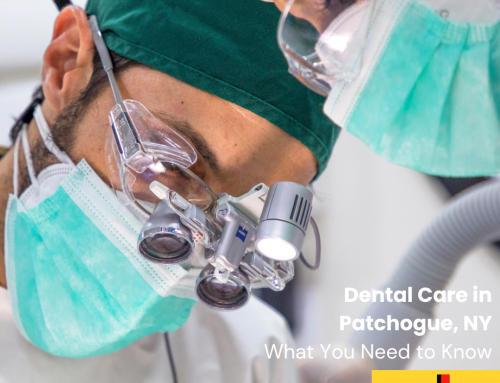
Your temporomandibular joint (TMJ) is a complex hinge-like joint on either side of your mandible, or lower jaw. It’s what connects your jawbone to your skull. And unlike most other joints, your TMJ can move in several different directions.
A healthy jaw is essential for everyday activities like chewing, talking, and even yawning. When this joint is damaged or strained, it can develop Temporomandibular Joint Disorder, otherwise known as TMD, TMJD, or simply TMJ disorder.
Top 5 Common Causes of TMJ Disorder
To find the best TMJ treatment in Long Island, the first step is to understand the root cause behind your TMD.
1. Bruxism (Teeth Grinding and Clenching) and TMJ are Linked
Bruxism is the often subconscious habit of grinding or clenching your teeth, and it’s a leading cause of TMJ disorder. Many people unknowingly grind their teeth, and it’s usually while they’re asleep. The constant pressure on your jaws can lead to pain and joint damage. Things like stress, sleeping disorders, anxiety, or misaligned teeth can contribute to bruxism. A non-invasive treatment usually involves a custom nightguard to alleviate pressure on your TMJ and protect your teeth.
2. Jaw Trauma or Injury to Your TMJ
Car accidents, falls, or sports-related injuries that impact the jaw can lead to TMJ disorder over time. The joint can become displaced or damaged due to such incidents, causing pain and restricted jaw movement. Physical therapy, moist heat, massage, and anti-inflammatory medication can.
3. Arthritis in Your TMJ
Arthritis is not limited to the knees and hands; it can also affect your jaw. Osteoarthritis, rheumatoid arthritis, and other types of arthritis can lead to inflammation, joint degeneration, and pain in your jaw. If you have a history of arthritis, be sure to let us know. We can work with your rheumatologist or primary care physician to develop the best plan of care.
4. Stress and Anxiety Behind TMJ
It’s no secret that stress and anxiety can affect your overall health. They often manifest themselves as physical symptoms, including teeth clenching and jaw tension. Over time, it can also contribute to jaw pain. Incorporating stress management techniques, such as relaxation exercises, counseling/therapy, or even exercise and a little sunshine can help boost your mood and take the strain off your teeth (and jaws.)
5. Malocclusion (Misaligned Bite)
When your upper and lower teeth do not fit together correctly it can put excessive strain on your jaw, especially if you have to move it abnormally in order to bite and chew your food. Over time, this easily leads to joint discomfort. At Sachem Dental Group, we offer orthodontic solutions, such as braces or clear aligners, to facilitate a healthier “bite” and jaw motion.
Schedule Your Consultation Today
If you’re experiencing any symptoms of TMJ disorder, including jaw pain, headaches, clicking or popping sounds when you open your mouth, or difficulty chewing, it’s essential to see a professional. At Sachem Dental Group in Long Island, our dedicated team of dentists is always here to provide personalized care and effective solutions for your circumstances. Including conditions like TMJ disorder.
Contact Sachem Dental Group today to schedule your consultation and take the first step towards a healthier, pain-free life.





